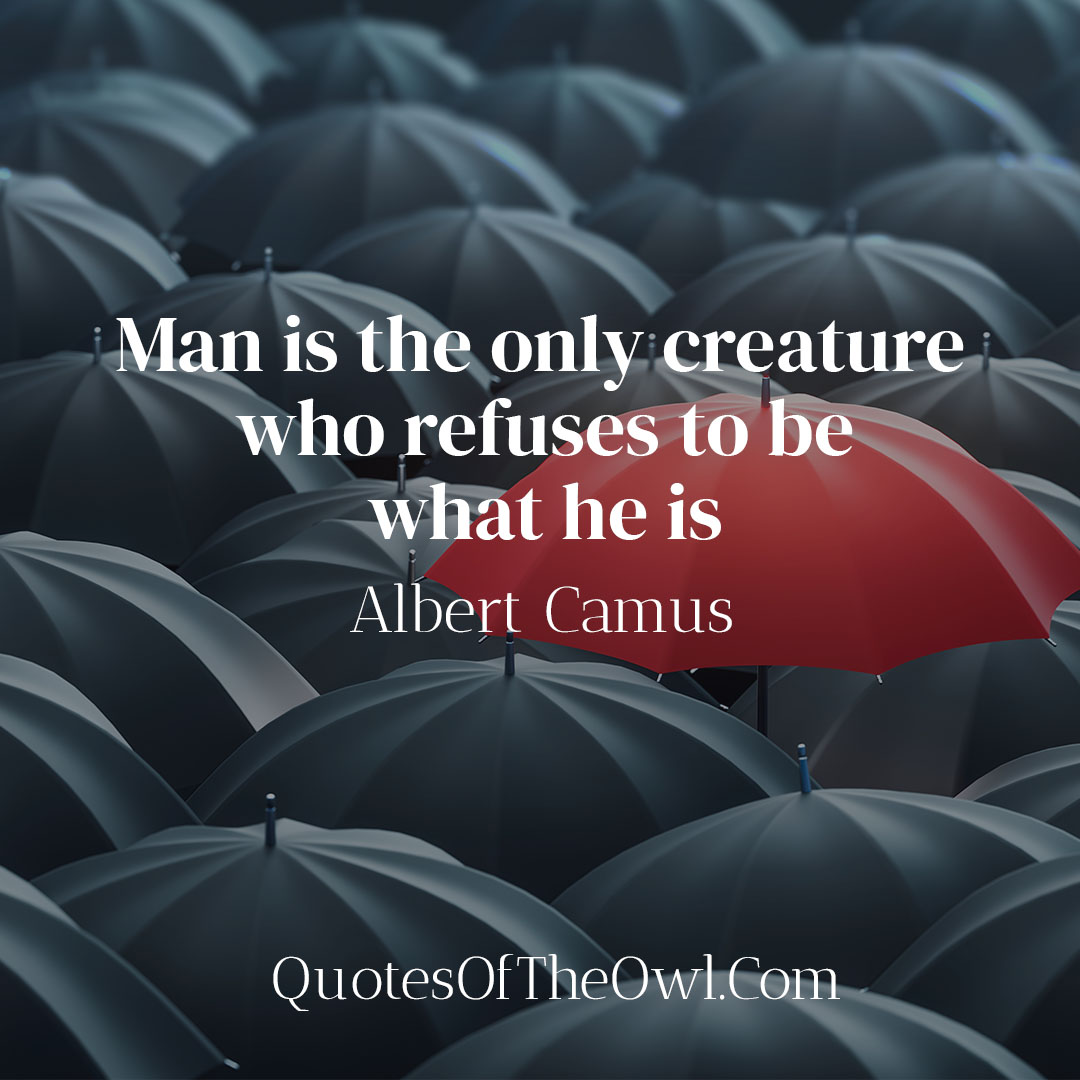Discover the profound message behind Albert Camus’ quote “Man is the only creature who refuses to be what he is”
Albert Camus, a French philosopher, author, and journalist, is known for his works that explore the human condition and the meaning of life. In one of his most famous quotes, he stated that “Man is the only creature who refuses to be what he is.” This quote has captivated minds for generations and led to a profound philosophical discussion about the nature of human beings. In this article, we will explore the meaning behind this statement and how it reflects the human experience.
Understanding the Quote
To understand the quote, we first need to examine what it means to “be what we are.” As humans, we are born with certain inherent qualities, such as our genetic makeup, temperament, and physical features. These qualities shape who we are and contribute to our unique identity. However, being true to ourselves goes beyond these inherent qualities.
To be what we are means to embrace our individuality and live our lives authentically. It means being true to our values, beliefs, and desires, and not conforming to society’s expectations or external pressures. It requires introspection, self-awareness, and the courage to pursue our dreams and passions, even if they go against the norm.
Camus’ quote suggests that while all other creatures in nature accept and embrace their natural instincts and traits, humans are the only ones who resist this natural tendency. Instead of embracing our uniqueness, we try to mold ourselves into something else to fit in with society or meet external expectations.
Why Do We Refuse to Be What We Are?
There are several reasons why humans refuse to be what they are. One is the fear of rejection and social exclusion. Humans are social beings, and we have an innate desire to belong and be accepted by others. As a result, we often conform to societal norms and expectations, even if it means sacrificing our individuality.
Another reason is the pressure to succeed and achieve greatness. Society often measures success by external factors such as wealth, status, and power. As a result, we feel the need to conform to these standards, even if it means sacrificing our personal values or passions.
Lastly, humans have the ability to reflect on their existence and question their purpose in life. This reflective ability often leads to existential angst and a sense of dissatisfaction with life. We may feel like we are not living up to our potential or fulfilling our true purpose, leading us to search for something more.
The Consequences of Refusing to Be What We Are
Refusing to be what we are can have several negative consequences. It can lead to a sense of dissatisfaction with life, feelings of depression and anxiety, and a lack of fulfillment. It can also lead to a disconnection from our true selves, resulting in a lack of authenticity and a sense of living a superficial or fake life.
Embracing Who We Are
Embracing who we are requires courage, self-awareness, and a willingness to take risks. It requires us to look inward and reflect on our values, desires, and passions. It also requires us to be vulnerable and authentic, even if it means risking rejection or disapproval.
By embracing who we are, we can experience a sense of fulfillment, purpose, and authenticity. We can live our lives on our own terms, pursuing our passions and values, and making a meaningful contribution to the world.
Conclusion
In conclusion, Albert Camus’ quote “Man is the only creature who refuses to be what he is” is a profound message that challenges us to embrace our unique identity and resist the pressure to conform to societal norms and expectations. By being true to ourselves and living authentically, we can experience a sense of fulfillment and make a meaningful contribution to the world.

